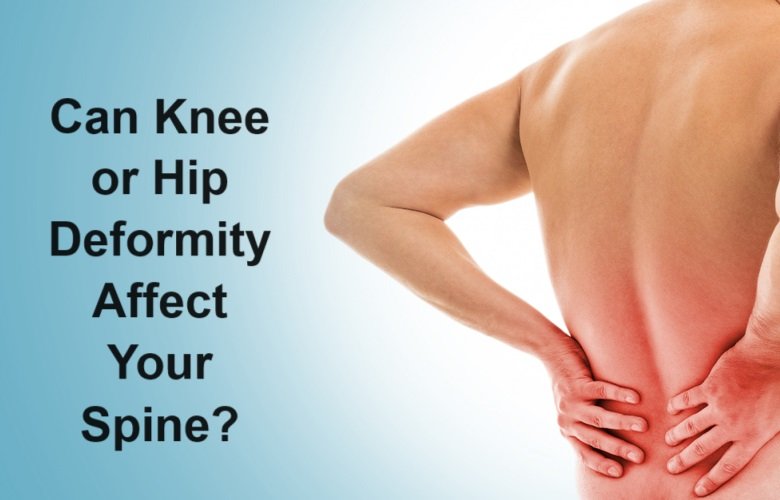Your backbone is the most complicated part of the human body. Many things can affect the health of your spine including hip and knee joint deformities. To know more about this topic, refer to the article below.
Common knee and hip deformities
The following are certain deformities or conditions.
Congenital Hip Dislocation (CHI): When your hip joint doesn’t form or develop properly like the hip socket is shallower than the normal depth, this is termed CHI. This is one of the causes of limping among many people.
This condition is also known as Developmental Dysplasia of the Hip (DDH).
Legg-Calve-Perthes Disease: This hip deformity is concerned with the femoral head or thigh bone top that sits within the socket of the hip that is also known as the acetabulum.
Slipped Capital Femoral Epiphysis (SCFE): This condition corresponds to the abnormality where the hip ball that fits in the acetabulum slips away from its appropriate place. This disorder of the hip usually develops when the affected person goes through adolescence.
Osteoarthritis: OA stands for a type of arthritis that is age-related. When your weight-bearing joints like the knee and hip sustain degenerative changes over time, you start experiencing joint inflammation and disability in mobilising your legs.
Rheumatoid arthritis: It is an autoimmune disease. In this condition, two or more joints of your body become arthritic. These joints could be your hips and knees, rendering you totally physically disabled.
Traumatic Injuries: External traumatising events can also cause hip and knee deformities.
Do such deformities affect the spine?
Yes, all types of knee and hip deformities affect the spine.
It mainly happens because when you suffer a knee or hip deformity, you cannot walk like a normal person. Your walk becomes such that it puts strain on your spine.
This extra strain that your spine is not anatomically made to handle regularly can lead to a variety of spinal conditions that can complicate the matter. These spinal conditions caused by joint deformities are discussed below.
How does a hip or knee deformity affect your spine?
If you have deformities concerning the knee and hip joints, you are prone to develop following disorders related to the spinal bones or vertebrae and soft tissue.
Scoliosis: In this condition, your spine becomes bent sideways abnormally.
Lordosis: This is another spinal problem that also occurs in the form of curvature but the same is in the lower back inwardly.
Kyphosis: This is the next spinal disorder: an abnormal forward rounding of the upper back. This is also called hunchback.
Degenerative Disc Disease: When you have hip and knee deformities, your backbone has to make compensatory adjustments while you are walking. Thus, it puts extra strain on the spine causing it to wear down faster than otherwise.
Herniated Discs: You might also develop a spinal hernia if you cannot walk properly because of hip and knee joint abnormalities.
Visit the following link for the most experienced spine doctor: the best spine surgeon in Delhi NCR.
Can you prevent knee and hip disorders?
However, congenital deformities cannot be controlled completely as they majorly depend on genetics.
Still, other types of knee and hip disorders like fractures, ligament tears, cartilage damage, bursitis, tendonitis, and synovitis can be managed with certain precautions.
Protective Gear: Don’t engage in any sports where there is a high risk of joint injuries without taking all the appropriate safety measures. Talk to your trainer or coach to learn about protecting your joints and body while playing a particular sports activity.
Dairy Products: If you are young like in your 20s, you must add calcium to your daily diet. Without enough calcium intake, you won’t be able to have the maximum peak bone mass after skeletal maturation.
And, it will make you develop osteoporosis as you age, making you prone to fracture-related issues.
Processed Foods: Avoid junk and processed foods as much as possible. Such foods are not fresh first. And on top of that, these foods are always low in nutrition.
Vitamins: Furthermore, vitamins play a vital role in keeping weight-bearing joint problems at bay. Vitamin D is crucial for the absorption of calcium. Thus, your body mustn’t lack this essential for-bone-health macro-nutrient.
In addition to that, antioxidants are also important to fight oxidative stress. Hence, ensure the presence of vitamins E and C in your diet. You can drink citrus fruit juice to get your daily requirement of vitamin C.
Protein: To protect your knee and hip joints, pay attention to muscles. If your joint muscles are thin and not much in density, you are more likely to sustain fractures even as a result of mild to moderate falls.
Avoid overtraining: Exercise is crucial, but make sure that you don’t over-exercise. It might cause muscle and ligamentous problems.
How to resolve knee and hip deformities
Certain deformities cannot be treated with surgical interventions. However, symptoms like pain, inflammation, tenderness, stiffness, and mobility issues can be managed with pain medications, physiotherapy, etc.
But, if your hip or knee joint deformity is surgically treatable, an experienced orthopedic surgeon might suggest that you should go for joint replacements.
For example, let’s talk about Slipped Capital Femoral Epiphysis (SCFE). This hip deformity is related to the thigh bone top that goes into the socket of the hip joint. It is also called the femoral head.
Under the condition of SCFE, your femoral ball slips away from its anatomically normal position creating an abnormality.
This condition can be treated with the help of a partial hip replacement arthroplasty. The surgeon will remove the abnormal part and use implants or artificial components to resurface the new femoral head.
These implants are made up of metal and plastic.
Benefits of joint replacements
There are many benefits of a joint replacement.
- You will not develop any spine issues related to deformities or limping because of knee and hip joint problems.
- You can lead a life free of pain postoperative.
- You don’t have to deal with any bouts of morning stiffness.
- You can live an active lifestyle as there will be no walking issues previously caused by the condition that has been treated with arthroplasty now.
And finally, everything leads to a more positive lifestyle.
Conclusion
Thus, in the end, yes, knee and hip deformities can cause spinal issues over time. If you need to consult the best specialist, visit the following link: the best orthopedist in South Delhi.
Internal link – ragdi









